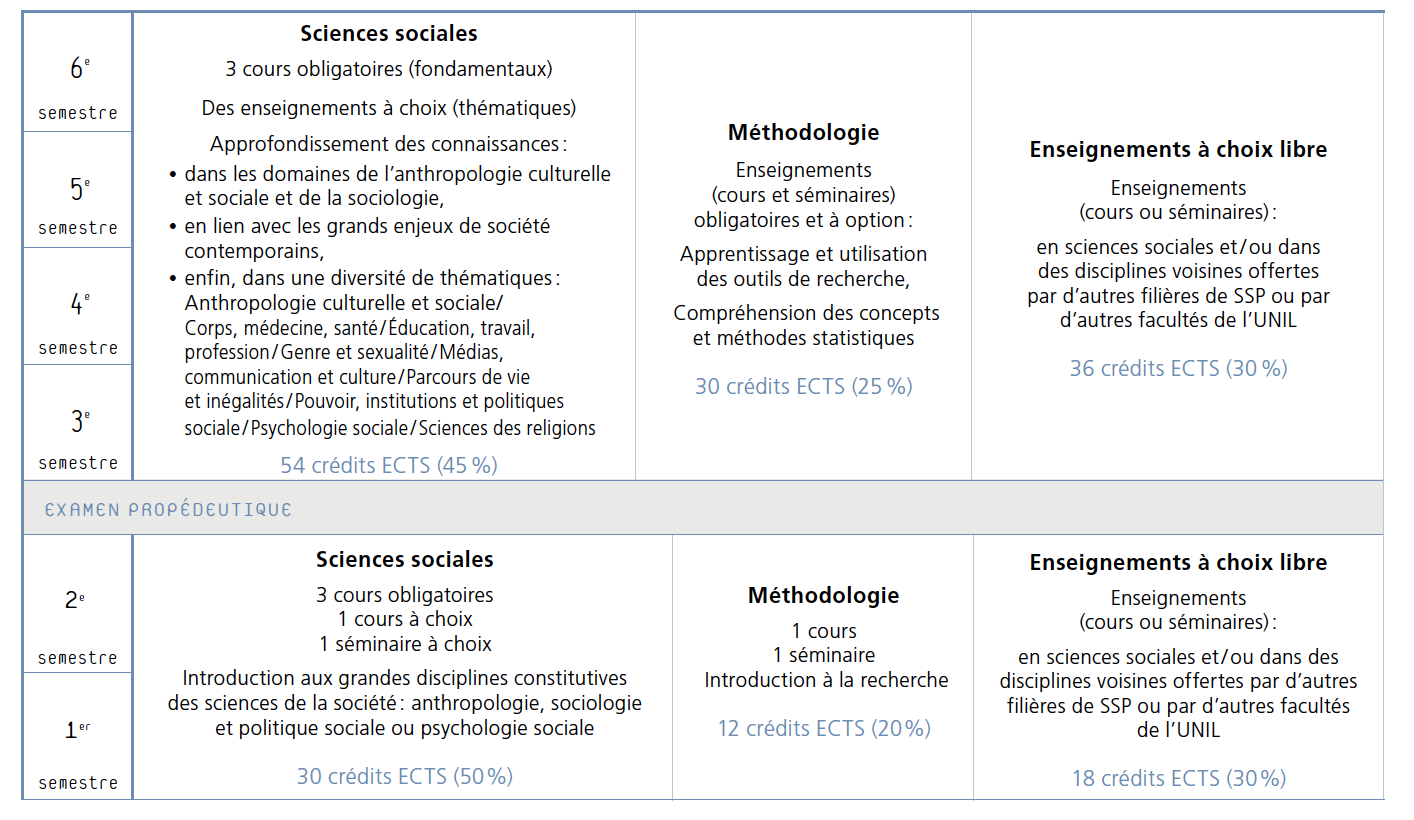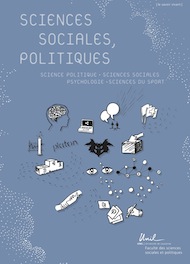The Bachelor of Arts (BA) in Social Sciences provides a solid training necessary to the understanding and analysis of social and cultural phenomena. The degree course follows a largely interdisciplinary approach and strives to explain both the general functioning of societies and their diversity.
The degree course in social sciences includes four main disciplines: social and cultural anthropology, sociologiy, social policy and social psychology.
Studies in the field of social sciences provide the epistemological framework and methodological tools required to understand the social environments in which individuals live. They thus allow to analye the behaviours of individuals in relation to their social living conditions from the perspectives of culture, economics and politics.

Organiser
Faculty of Social and Political Sciences
Degree Awarded
Bachelor of Arts (BA) in Social Sciences
ECTS Credits
180
Duration
6 semesters
Teaching Language
French
Enrolment Deadline
30 April. If you require a visa to study in Switzerland: 28 February.
Further information
Applications
Course description
Timetables
At UNIL, the following Master's programmes are open without further conditions to holders of the Bachelor of Arts (BA) in Social Sciences:
- Master of Arts in Social Sciences
- Master of Arts (MA) in Public Management and Policy
- Master of Arts (MA) in Sciences and Practices of Education
- Master of Arts (MA) in Tourism Studies
- Master of Arts (MA) in Digital Humanities
- Master of Law (MLaw) in Criminology & Security
- Easier access to the Master of Arts (MA) in the Study of Religions for students who have obtained a Bachelor of Arts (BA) in Social Sciences at UNIL and have attended courses in social sciences of religions and in the study of religions.
Studying with the Faculty of Social and Political Sciences offers a wide range of options. As a result, graduates in Social Sciences work in a variety of areas, in numerous professional sectors.
Except for a few specialist areas that require qualifications in a particular field, graduates may move into sectors that do not necessarily have a direct link with their discipline.
Career prospects depend partly on the choice of Master’s course.
Areas of activity
- Research in public or private-sector organisations, often in multidisciplinary groups
- Local, national or international public authorities and intergovernmental organisations: project management, coordination and advice to authorities
- Written and audiovisual information, and media
- Surveys and market research
- Cultural areas, for example, event management firms and publishing houses: event organisation and communications, management of cultural institutions, etc.
- Human resources, marketing, advertising and public relations
- Sociological surveys
- Community networks: project management and coordination
- Development cooperation
In figures
Every two years, the Swiss Federal Statistical Office (OFS) conducts a survey on graduate employment, one year after students have completed their course. View the results for Social Sciences graduates online:
- “Premier emploi après les études” (“First job after graduating”) survey on employment among Swiss university graduate
- De l’UNIL à la vie active (From UNIL to working life) – results of the survey for UNIL graduates specifically
Examples of positions
- Scientist, Social work department and Public health service

